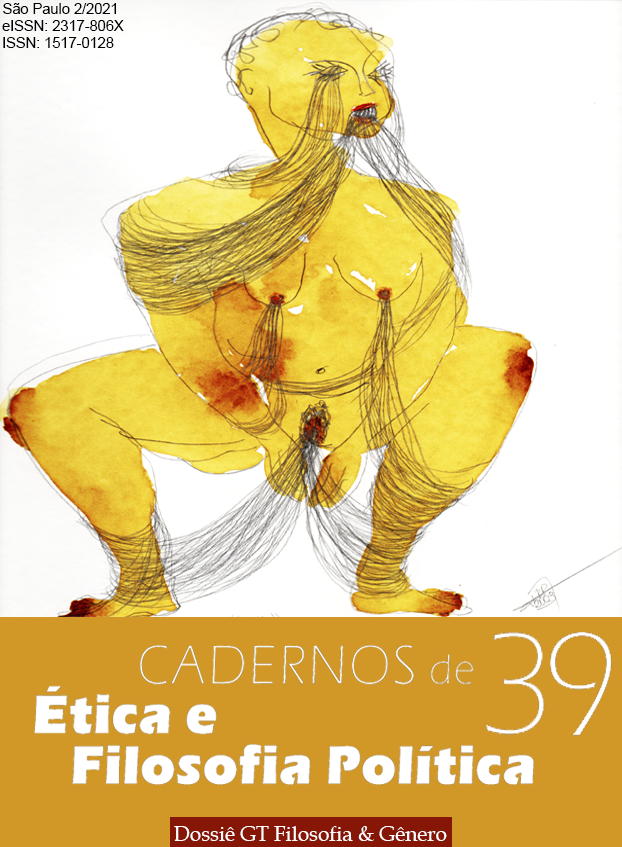The intersectionality as ground of black feminism
DOI:
https://doi.org/10.11606/issn.1517-0128.v39i2p21-32Keywords:
Black feminism, Gender, Intersectionality, Opression, RaceAbstract
The analysis of processes of gender oppression begins to emerge in philosophical reflections, either by focusing on the functioning of the patriarchal system or by focusing on the intersection of patriarchy with relations of domination from ethnic-racial origins. In general, such reflections seek to examine the foundations of oppressive systems and the reaction of women to such systems. Different forms and demands of feminist movements are found and the ways in which they seek, through the discussion of gender, to strengthen the social and political role of women. In this context, this article aims to examine the place of black feminism in the debate and its bases of support, in view of the peculiarities of the needs of black women. These peculiarities are related to the structural inseparability between patriarchy, sexism, racism, and its articulations that imply in multiple situations of oppression suffered by this group of women. In other words, it seeks to analyze the centrality of the concept of intersectionality for understanding the role of black feminism in philosophical reflections on the condition of black women in society.
Downloads
References
AKOTIRENE, Carla. O que é interseccionalidade? Belo Horizonte, MG: Letramento:Justificando, 2018.
BOURDIEU, Pierre. A Dominação Masculina. Rio de Janeiro: Bertrand Brasil, 2012.
COLLINS, Patrícia Hill. Pensamento Feminista Negro: conhecimento, consciência e a política do empoderamento. tradução Jamile Pinheiro Dias. 1 ed. São Paulo: Boitempo, 2019.
CRENSHAW, Kimberlé. A Interseccionalidade na Discriminação de Raça e Gênero. Cruzamento: Raça e gênero. Brasília, p. 7-16, 2004.
DAVIS, Angela. Mulheres, Raça e Classe. Tradução Heci Regina Candiani. 1 ed. São Paulo: Boitempo, 2016.
FANON, Frantz. Pele Negra, Máscaras Brancas. Salvador: EDUFBA, 2008.
FEYERABEND, Paul. Against Method. Londo: Verso, 1993.
FEYERABEND, Paul. A Ciência em uma Sociedade Livre. São Paulo: UNESP, 2011.
FRIEDAN, Betty. A Mística Feminina. 1ª Edição. Rio de Janeiro: Rosa dos Tempos, 2020.
HOOKS, bell. E eu não sou uma mulher? Mulheres negras e feminismo. Tradução Bhuvi Libanio. 1 ed. Rio de Janeiro: Rosa dos Tempos, 2019.
HOOKS, bell. Teoria Feminista: da margem ao centro. Tradução Rainer Patriota. – São Paulo: Perspectiva, 2019.
JORDAN, June. Civil Wars. Boston: Beacon Press, 1981.
KILOMBA, Grada. Memórias da Plantação: episódios de racismo cotidiano. Tradução Jess Oliveira. 1 ed. Rio de Janeiro: Cobogó, 2019.
LORDE, Audre. Sister Outsider. Berkeley: Crossing Press, 2007.
RIBEIRO, Djamila. O que é lugar de fala?. Belo Horizonte: Letramento: Justificando, 2017.
Downloads
Published
Issue
Section
License
Copyright (c) 2021 Eugênio Mattioli Gonçalves

This work is licensed under a Creative Commons Attribution-ShareAlike 4.0 International License.


